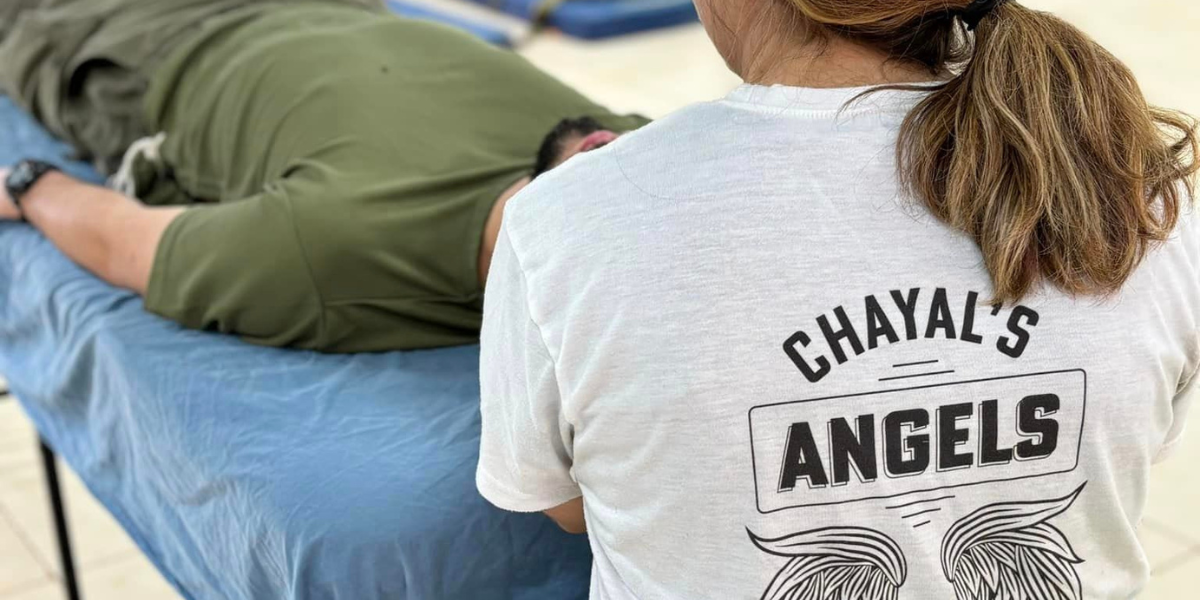Israeli Scene
Chayal’s Angels Brings Alternative Treatment to Soldiers

Thousands of reserve soldiers sent to Israel’s northern border after October 7 left behind jobs, families and everyday responsibilities to protect their nation. During war, soldiers are prepared to bear physical discomfort. But these men and women, mostly in their 20s and 30s, are no longer accustomed to sitting in cramped tanks, carrying rifles over their shoulders and toting around heavy equipment on their backs for hours at a time. Their bodies aren’t used to battle rations and spending nights lying on the cold, hard ground. Before long, many reservists began suffering back and shoulder pain, injured knees, respiratory and digestive ailments and chronic insomnia.
So Tasha Cohen, a business manager from northern Israel who had benefited for many years from alternative therapies to ease the repercussions of a serious car accident, was determined to offer them relief. She recruited acupuncturists, chiropractors, physiotherapists, massage therapists and yoga instructors from cities near her Haifa-area home to treat suffering soldiers for free. She calls her group Chayal’s Angels. Chayal is Hebrew for “soldier” and the name is a play on the American television series, Charlie’s Angels.
Every day since mid-October, Cohen has sent groups of practitioners—who donate their time—to northern army bases with folding massage tables and yoga mats. In its first 10 weeks, Chayal’s Angels treated 2,500 soldiers, and Cohen hopes to continue as long as they are stationed in the Lebanon border area.

“These soldiers are keeping us all safe, and working with them gives me a tremendous feeling of fulfilment,” said Zev Alpert, an acupuncturist with a clinical specialty in treating pain and anxiety. “I usually treat 10 soldiers each time, and they are extremely grateful.”
Cohen, who emigrated from London 12 years ago, said she and the practitioners feel an indescribable sense of “unity, joy and relief” in their mission, noting that in an average week, 20 therapists give 100 to 300 treatments.
Looking ahead, Cohen would like to expand the program to pay the therapists as well as open a balance center after the war where soldiers could get free alternative treatment for physical and psychological ailments.
“Over the past weeks and months,” she said, “it has become apparent that our soldiers will need to heal from the stress, trauma and exhaustion that arise from the collective undertaking.”
Jordana Benami








 Facebook
Facebook Instagram
Instagram Twitter
Twitter
Leave a Reply